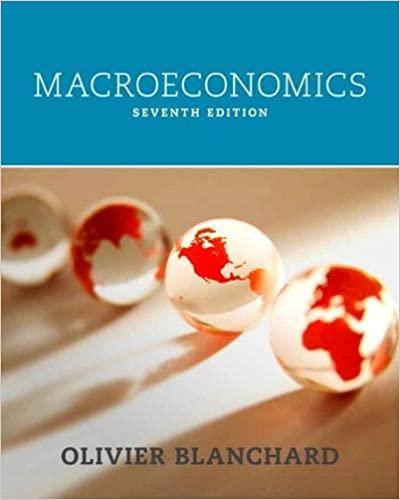Suppose that every consumer is born with zero financial wealth and lives for three periods: youth, middle
Question:
Suppose that every consumer is born with zero financial wealth and lives for three periods: youth, middle age, and old age. Consumers work in the first two periods and retire in the last one. Their income is \(\$ 5\) in the first period, \(\$ 25\) in the second, and \(\$ 0\) in the last one. Inflation and expected inflation are equal to zero, and so is the real interest rate.
a. What is the present discounted value of labor income at the beginning of the first period of life? What is the highest sustainable level of consumption such that consumption is equal in all three periods?
b. For each age group, what is the amount of saving that allows consumers to maintain the constant level of consumption you found in part (a)? (Hint: Saving can be a negative number if the consumer needs to borrow to maintain a certain level of consumption.)
c. Suppose there are \(n\) people born each period. What is total saving in the economy? (Hint: Add up the saving of each age group. Remember that some age groups may have negative saving.) Explain.
d. What is total financial wealth in the economy? (Hint: Compute the financial wealth of people at the beginning of the first period of life, the beginning of the second period, and the beginning of the third period. Add the three numbers. Remember that people can be in debt, so financial wealth can be negative.)
Step by Step Answer:






